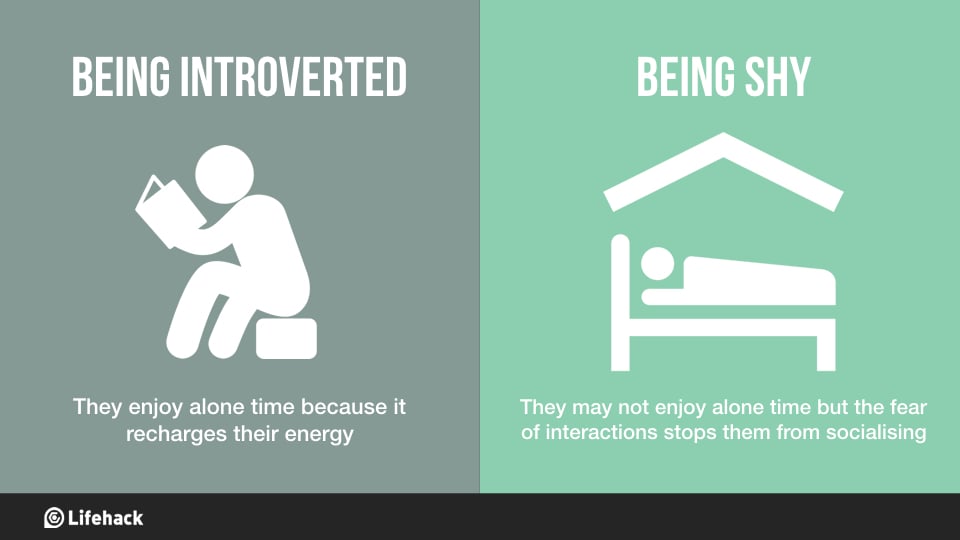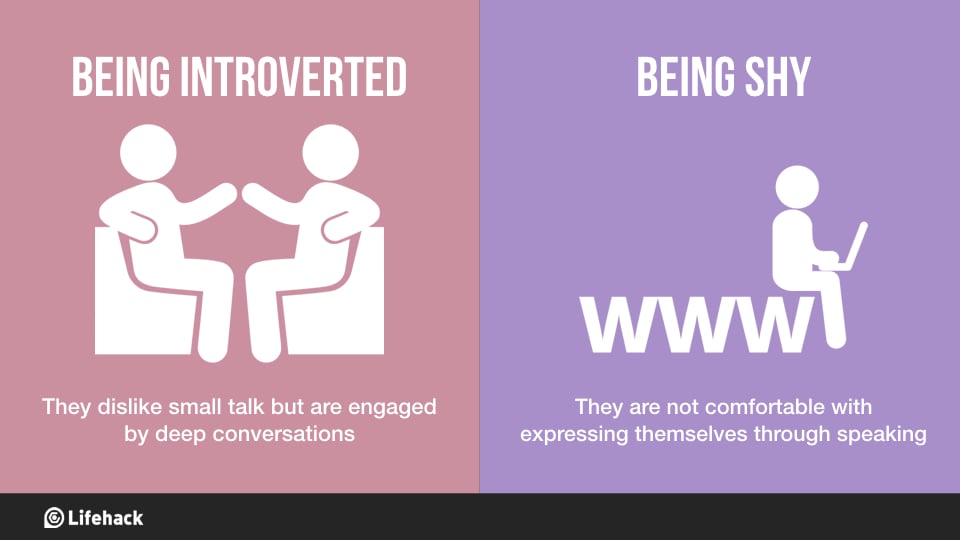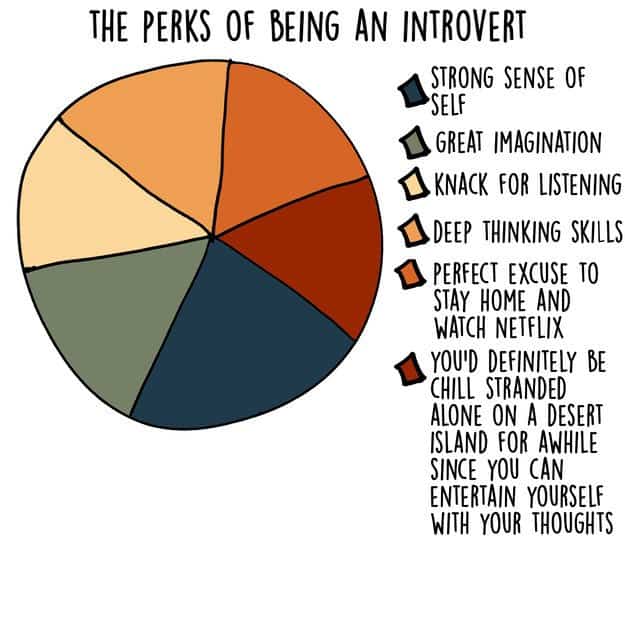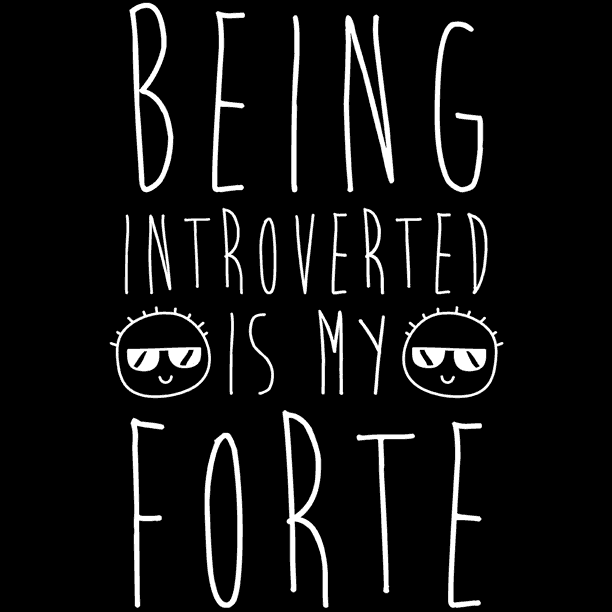What Does a Leader Look Like?

Briscoe Turner is a student staff member at the Women’s Center. She is a sophomore Psychology major and Writing minor and a co-facilitator of Women of Color Coalition, a bi-weekly discussion group at the Women’s Center.
Do you know whether you are an introvert or extrovert? If not, take this quiz to find out!
Myers-Briggs: Are You Extroverted Or Introverted?
Here is a more in-depth version of the personality test:
Before taking the quiz, you probably had distinct ideas of what introversion and extroversion were and the perceptions that come along with them. Often in movies, books, and even leadership conferences, the image of a leader is painted as an extrovert with a loud, commanding voice who enjoys being the center of attention. Introverts are normally depicted as the shy outcast who is more of a follower than a leader. Right off the bat, this narrative perpetuates a misconstrued idea of the terms introvert, extrovert, and ambivert. To clear it up, here is a basic breakdown of the terms:
Introvert: Drained by social encounters and energized by solitary
Extrovert: Finds energy in interactions with others
Ambivert: Exhibits a blend of introverted and extroverted tendencies
Although introvert simply means that you need time to yourself to recharge, many introverts do happen to be shy and quiet. We are capable of navigating social situations, but often we prefer not to for extended periods of time. With that being said, every introvert is different and has varying levels of comfortability in social settings.


As a quiet introvert myself, I have felt pressured to “come out of my shell” to the point where I would not be authentically acting as myself. I always wonder why people can’t accept me for who I am rather than trying to fit me into a fixed image of what they imagine a leader to be. For example, when I facilitate discussion groups, I welcome moments of silence because I know that silence isn’t always empty. Some may view this as my inability to engage the group, but I see it as time for group members to take in what has been said and process their thoughts.
I simply do not fit the mold of the outspoken and energetic leader, and I’m perfectly okay with that. The way I make contributions in group settings is unique to me. I do not like small talk, and I prefer to engage in conversations when I feel that I have something important to say. I hold the belief that it’s not always about the amount you say and how loudly you can say it. Making your point louder or with more bravado does not make it more valid or persuasive. Sometimes fewer words said by a quieter presence is more impactful.
 Susan McCain, author of Quiet: The Power of Introverts in a World That Won’t Stop Talking, introduces the concept of the The Extrovert Ideal which describes “the omnipresent belief that the ideal self is gregarious, alpha and comfortable in the spotlight.” In her book, she also talks about how introverts are forced into thinking that their natural, quiet demeanor is only holding them back.
Susan McCain, author of Quiet: The Power of Introverts in a World That Won’t Stop Talking, introduces the concept of the The Extrovert Ideal which describes “the omnipresent belief that the ideal self is gregarious, alpha and comfortable in the spotlight.” In her book, she also talks about how introverts are forced into thinking that their natural, quiet demeanor is only holding them back.
Contrary to popular belief, many introverts do not look to extroversion as an ideal that they hope to achieve during their lifetime. We due aim to grow and push ourselves out of our comfort zones from time to time, but that doesn’t have to be at the expense of the essence of who we are.

This same issue unveils itself in the way that society has defined gender roles. Typically, men are expected to be assertive leaders, while women are expected to be quiet, submissive followers. Due to this, leadership has been associated with extroverted personalities to reflect patriarchal ideals. In reality, leadership is not a fixed concept that can be attributed to a particular gender. It is flexible and can change regardless of what gender someone identifies as.
McCain says she has “seen young women with these [introverted] styles exhorted to be louder, bolder, more uninhibited, when a more nuanced approach would have suited them better.”
If we look at some famous women, past and present, we will find many powerful women who have led revolutions or dominated their professional arenas that identify as soft-spoken introverts. For example, in Rosa Parks’s obituary, she was described as soft-spoken and sweet with radical humility and quiet fortitude. She was able to make such a powerful statement using few words.
Marissa Mayer, CEO of Yahoo, is a self-proclaimed introvert who feels that the media paints her as an extrovert. Other examples include: Martha Minow, the Dean of Harvard Law School, who McCain describes as the “ultimate quiet leader”; founder of Teach for America, Wendy Kopp; and actress Emma Watson. These are just a few of the many women who have gotten where they are because they are authentic to themselves.

A common thread among all these women is that society has made the assumption that they must be extroverted to be as successful as they are. There’s no way that someone who doesn’t like to be in the spotlight or is more calculated about how much they speak could hold the positions that they do.
The truth is, introversion and quietness are personality traits that are an asset. Introverts are comfortable with silence and introspection; this allows us to assess a situation and take a thoughtful approach in our response. We understand that we don’t have to be the loudest person in the room to be heard because often times we command attention just by our presence. People often wonder what we have to say, and when the the time is right, we’ll let you know.
You wouldn’t force a fish out of water and expect them to swim, so why would you try to diminish defining aspects of a person’s personality and expect them to thrive? It is important to remember that there is room for both extroverted and introverted leadership styles. I would encourage people to make space for introverts, without assuming that we are fearful to speak or participate. Sometimes we simply don’t want to, but we definitely have the ability to. I would also suggest instead of trying to get us to speak louder (unless we are completely inaudible), try and listen more and be patient.
Yes, our calmer, quieter demeanor can provide a sense of ease to a room, but don’t be fooled into thinking that we do not have a fire burning inside of us to achieve our goals and help address the world’s most pressing problems. Don’t mistake our silence as passive agreement. Change is only possible through the mobilization of all different types of people, so there’s space for all personalities.

Check Out These Resources Below:
10 Successful Women for Introverts to Look Up to
Does Feminism Make Room for Shy or Introverted Girls?
Meyer Briggs Extraversion or Introversion
Posted: April 2, 2019, 11:13 AM